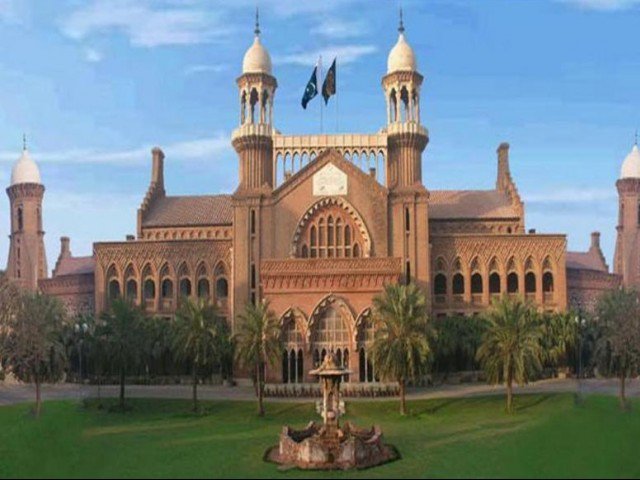
The Judicial Commission of Pakistan (JCP) has sought data regarding the reported judgments and cases decided by the three most senior judges, including the chief justice, of the Lahore High Court (LHC).
The three judges whose records have been sought by the commission ahead of its meeting include Chief Justice LHC Muhammad Ameer Bhatti, Justice Malik Shahzad Ahmad Khan and Justice Shujaat Ali Khan.
Likewise, the JCP has also sought the details regarding the dates of their appointments as LHC judges.
Chief Justice of Pakistan Gulzar Ahmed has summoned a meeting of the commission on September 9 to consider the name of LHC judge Ayesha Malik for appointment to the Supreme Court as Pakistan’s first female SC judge.
Her name will be discussed for the seat that would fall vacant after the retirement of Justice Mushir Alam. Justice Ayesha is number four on the LHC judges' seniority list. She became an LHC judge in March 2012.
In case of her elevation, she will work as an SC judge until June 2031. She will also become the CJP after the retirement of Justice Yahya Afridi in January 2030.
The Pakistan Bar Council (PBC) and other lawyers' bodies have opposed the potential elevation of Justice Malik to the top court. The PBC vice chairman said that it was a consistent stance of the legal fraternity that the JCP should follow the principle of seniority. He said the practice and desire to pick and choose should be stopped for elevation to the Supreme Court.
Earlier, similar information was sought by the JCP from the Sindh High Court. The JCP had sought the record concerning four senior judges of the SHC before elevating Justice Mazhar Ali to the top court despite the fact that he was the fifth senior-most judge in the high court.
AGP writes to PBC
Meanwhile, Attorney General of Pakistan Khalid Jawed Khan has written a letter to the Pakistan Bar Council (PBC) and the Supreme Court Bar Association (SCBA), requesting the bars to find common grounds so that the process of appointments to the apex court can be transparent.
The letter read: "In the appointment of judges other than the most senior judges/Chief Justice of High Court to the Supreme Court has been under discussion recently and there appears a discord between the views of the members of the JCP and the bar councils and bar associations."
"The Constitution is silent on this issue while the judgment of Supreme Court in the case of Supreme Court Bar Association vs Federation of Pakistan (PLD 2002 SC 939) stipulates that seniority is not a mandatory requirement for appointment to the Supreme Court."
The AGP said it's a fact that this judgment has not been universally accepted, adding that there were "compelling arguments" on both sides and the "debate will continue until parliament acts decisively".
To end this discord, the members of the legal fraternity needed to provide their input which shall be placed before the JCP for consideration in its next session on Sept 9, the top lawyer said, adding that seniority, though important, is not a "benchmark" for appointments to the apex court.
Speaking about merit, he said: "There is also a force in the argument that the SC being the last court and comprising only 17 judges, the ideal principle for appointments should be a blend of seniority and merit. While there is an objective standard for the determination of seniority, merit is a more flexible concept ... [and] there is a need to evolve objective criteria... [to end] any favouritism and nepotism."
According to the AGP, multiple factors are taken into consideration for the performance evaluation of high court judges, some of which may be mathematically determined on the basis of available data while other factors would be informed by general evaluation and perception.
"These could include reputation and public perception about integrity, independence and impartiality, health condition, length of service, number of cases heard and judgments delivered, number of cases heard but judgments not delivered, average duration between final hearing and delivery of judgement, commitment to constitutional values and fundamental rights, range and diversity of work, expertise in a particular area, command over language, temperament and demeanour towards colleagues, the bar and the litigants etc," he added.
“Being a representative of the legal fraternity in your respective capacity … you are requested to convey the views of the legal fraternity on this subject.”
“I intend to present the criteria for the consideration of JCP in its next meeting and shall make every possible effort to persuade…JCP to adopt and make public such criteria leaving little room for disharmony on such vital issue”.
Women judges in superior judiciary
On the matter of women judges in the superior judiciary, the AGP added: “May I also take this opportunity to request the views of the bar on yet another important issue viz the allocation of at least one and in future more seats for women judges in the Supreme Court."
He added that "in the next meeting of JCP, I intend to propose that the JCP acknowledges and reiterates the need for the appointment of more women in the superior judiciary and confirm that henceforth there shall always be at least one seat earmarked for appointment of a woman judge in the Supreme Court".
The AGP said India appointed three women to its Supreme Court who took oath on Aug 31 (today). These include Justice Bangalore Venkalararniab Nagarathna who was third in the line of seniority in Kamataka High Court and will become the first female CJ of India in September 2027.
Besides her Justice Bela M. Trivedi, the fifth in line of seniority in Gujrat High Court also took oath as the judge of the Supreme Court of India today. The third judge is Justice Hima Kohli.
"These being vital issues relating to the administration of justice in the country, I would request you to convey the collective views to of the Bar so that these important constitutional matters may be resolved amicably in a dignified manner consistent with the highest traditions of this noble profession with which we are all privileged to be affiliated," the AGP concluded.







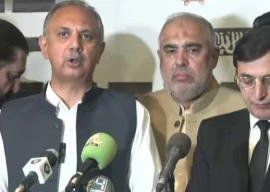
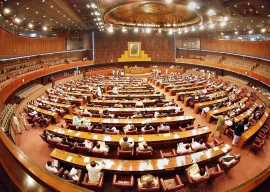

1726140338-01730723472-0/Untitled-design-(42)1726140338-01730723472-0-270x192.webp)
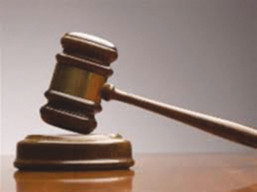
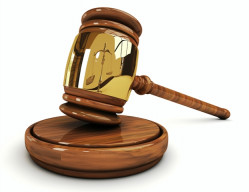
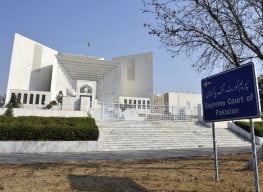




1730706072-0/Copy-of-Untitled-(2)1730706072-0-270x192.webp)
COMMENTS (1)
Comments are moderated and generally will be posted if they are on-topic and not abusive.
For more information, please see our Comments FAQ